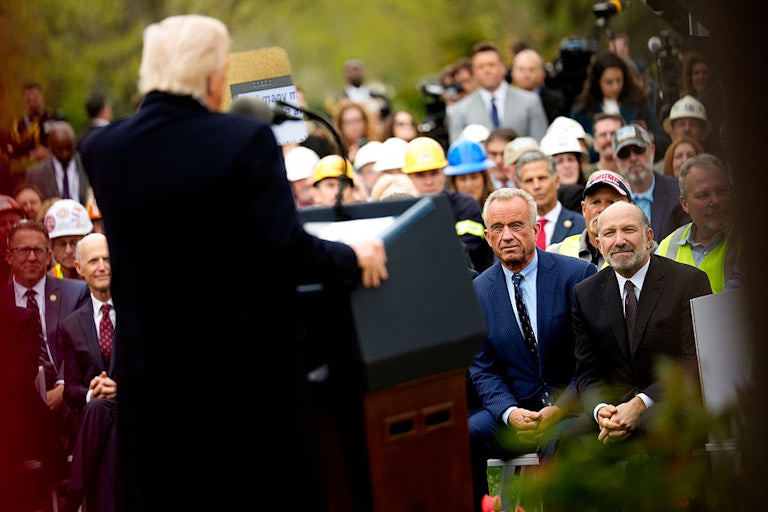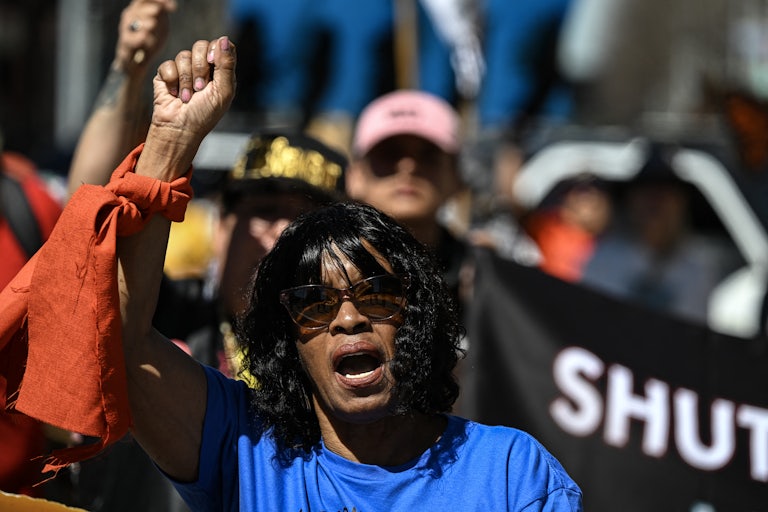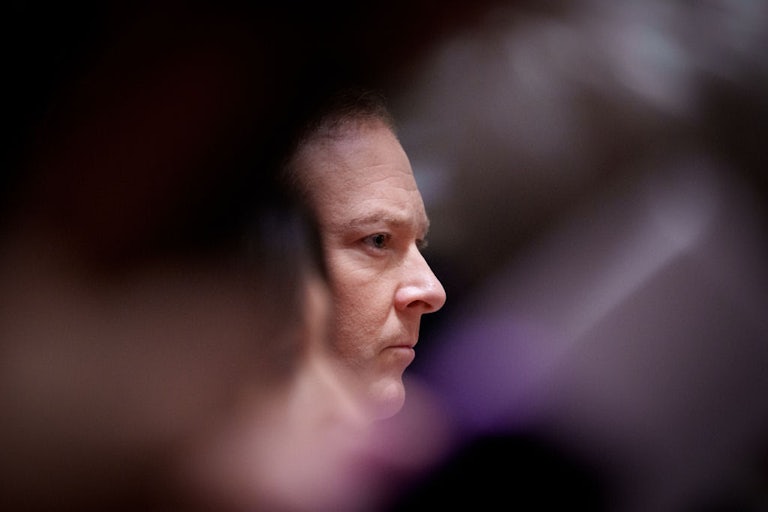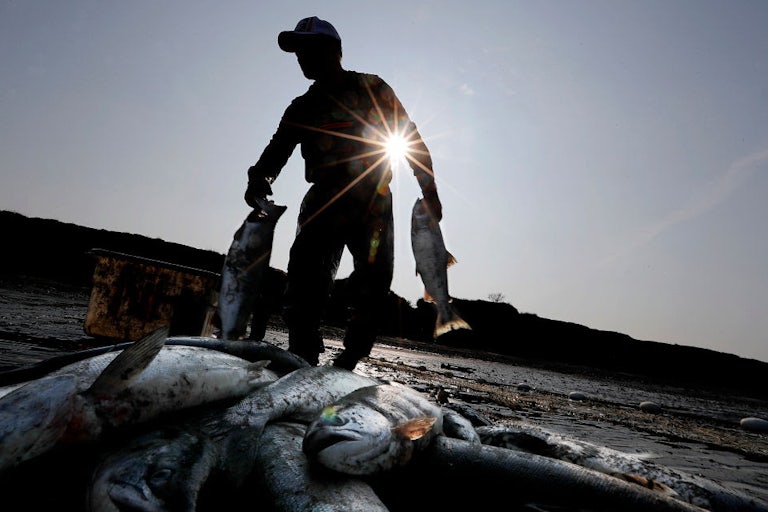Boston’s Election Results Are the Big, Untold Story This Week
Michelle Wu’s quiet landslide defies conventional wisdom about alienating business interests. And it could turn Boston into one of the most interesting climate policy incubators in the country.
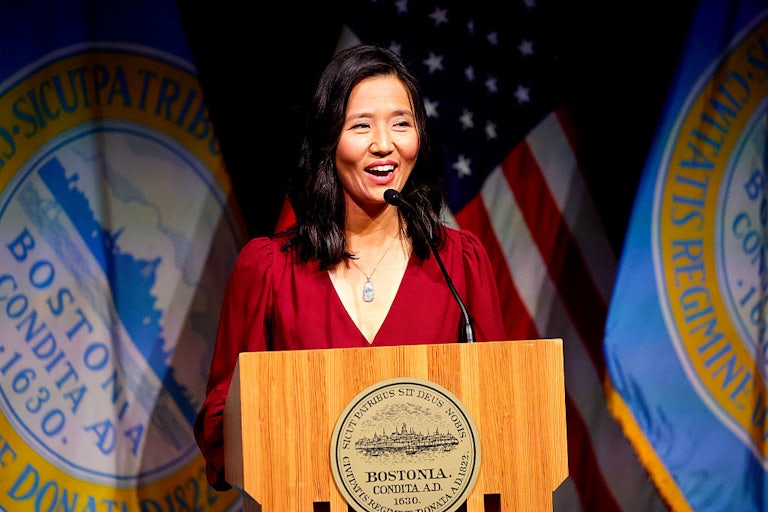
All progressive eyes are on New York City this week, after democratic socialist Zohran Mamdani cruised to victory amid voter turnout not seen since the 1960s. New York City could now become a testing ground for left-wing policies including widespread rent control, free buses, universal childcare, public school rooftop solar, and public grocery stores.
TNR writers have previously written about how significant some of these could be as a form of climate policy, reducing emissions while helping offset the costs (for example, with food prices) associated with rising temperatures. But Mamdani may yet face stiff headwinds on getting these policies implemented. And that’s why another, far less publicized result on Tuesday night is significant: 200 miles to the north, Boston Mayor Michelle Wu secured the City Council seats she needed to proceed with an ambitious vision for climate and housing policy.
As The Boston Globe’s Sabrina Shankman noted this summer, Wu initially seemed slow to implement her lofty Green New Deal campaign proposals. But free bus routes, net-zero requirements for new buildings, and a “very, very detailed” and aggressive climate plan released this summer reversed that impression. She then won the September preliminary election so definitively that her competitor dropped out and Wu ran uncontested on Tuesday—a stunning result given that her opponent was extremely well funded and business interests and particularly the real estate industry don’t like Wu. That kind of stuff often sinks politicians in this country.
The one obvious check on Wu going forward would have been if she lost allies in the City Council elections on Tuesday, thus depriving her of majority votes for her policies. Instead, one of her closest and reportedly most precarious allies, Henry Santana, fended off a challenge from former District 3 councillor Frank Baker, ultimately securing a decisive victory, despite facing an—I kid you not—10-to-one campaign-coffer ratio in Baker’s favor as of August. Wu going all in supporting Santana seems to have made a difference.
It will be tempting for non–New Englanders to write this off, as they usually do, believing Massachusetts is so blue that nothing that happens there is relevant for politics elsewhere in the country. But progressive policies don’t always fly in Massachusetts, for the same reason they fail elsewhere. “Polls confirm that Bay State voters are resolutely progressive on a range of issues,” Robert Kuttner wrote in The American Prospect in 2023. “But on policy, Massachusetts continues to lag far behind other Democratic trifecta states. If you unpack why this is the case, you appreciate that it isn’t only right-wing Republicans who undermine both democracy and popular faith in democracy. It’s also corporate Democrats in one-party states.” At the wider state level, Kuttner argued, governors and legislators assiduously avoid pissing off the business lobby.
Granted, Boston is well to the left of the wider state. But there’s also another reason Wu cementing power is significant: Climate policy needs testing grounds.
This is why congestion pricing in NYC has been so closely watched by climate activists and so disproportionately attacked by the right, including President Trump, TNR’s Liza Featherstone argued in March. Not only do serious climate proposals—of which there are many, but precious few implemented in full—need pilot programs in American politics; in a world where the primary rhetorical attack on climate policies is that they’re unrealistic, expensive, and will make people’s day-to-day lives worse, successful ones offer proof of concept for cities, states, and countries everywhere. The right-wing obsession with congestion pricing is not an accident, Liza wrote, and it has implications far beyond even climate policy: “It’s important to them to stop this bold government solution to improve our lives because real solutions and positive experiences with government endanger the entire right-wing project.”
Michelle Wu now has the council majority needed to proceed with testing more of these policies. And she has it because she and her allies are somehow winning the battle against business interests. Boston’s election results won’t get top billing this week. But ignoring them would be a mistake.
Stat of the Week
2.8 degrees Celsius (5 degrees Fahrenheit)
This is the U.N.’s projection, released last week, on how much the Earth is expected to warm relative to preindustrial levels if we stay on our current trajectory. Most experts, as well as the Paris climate agreement, say warming needs to be limited to “well below” two degrees Celsius, and ideally 1.5, to manage risk.
What I’m Reading
EU countries weaken 2040 climate plan in eleventh-hour deal
In a dampening result ahead of the UN COP30 climate conference in Brazil next week, the EU scaled back its climate plan to appease member states that wanted “to delay a landmark carbon pricing system and to allow governments to outsource emissions reductions to other countries.”
It’s a troubling sign, from the climate standpoint, that the impact of Trump’s presidency is starting to snowball abroad:
The EU has traditionally been among the most ambitious negotiators at COP, but with its climate agenda under pressure from both rightwing politicians and trading partners such as the US, campaigners fear that the weakened target will undermine its diplomatic arguments as it tries to keep other countries on board with reducing emissions sufficiently to avoid devastating climate events in future.
Read the full report at the Financial Times.
This article first appeared in Life in a Warming World, a weekly TNR newsletter authored by deputy editor Heather Souvaine Horn. Sign up here.


